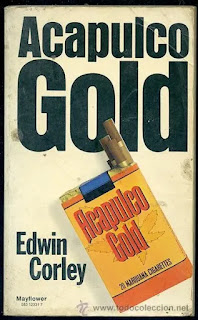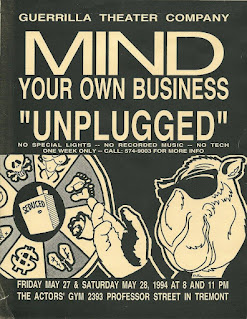When I was a sophomore at the Ohio University’s School of Theater, I played the role of Father Donnally in an undergraduate production of Durang's The Marriage of Bette and Boo. I recently came across my script, upon which I had drawn a faithful self-portrait (see right) as the character Father Donnally.
For the run at the Public Theatre in 1985, the role of Father Donnally was originated by Richard B. Shull who is best-remembered by my generation for performing as the judge in Billy Joel's "Keeping the Faith" music video. The role of Paul was performed by another Ohio University School of Theater grad, J. Bill McCutcheon who played Uncle Wally on Sesame Street fame and also Dropo in Santa Claus Conquers the Martians.
There was much about this play that I did not understand as a nineteen year-old undergrad. Alcoholism for one, child loss for another. A thinly veiled roman a clef about his own family (the playwright played the protagonist in the original production) Bette is a woman who desperately wants lots of children, but only her first survives. Bette and her husband “Boo” have the Rh factor, which was why my own grandparents’ children all died, in utero or shortly after birth.
 |
| Self (Father Donnally) with Katurah Nelson (Bette) "The Marriage of Bette & Boo" Ohio University School of Theatre (1988) |
Father Donnally is a figure of patriarchal uselessness. He and a doctor are supposed to be played by the same actor, the only character who is not a member of Bette and Boo's family. A different actor played the doctor in this production.
In the play Bette and Boo, every time another child is expected the doctor arrives with a swaddled bundle, drops it on the floor and announces dispassionately, “It’s dead, the baby’s dead.” In the Forum Theatre at O.U., the doctor dropped the baby from the lighting grid over the stage. On opening night, each announcement got bigger and bigger laughs from the packed house of supportive theater students.
The second weekend of performances was Parents’ Weekend, and that Saturday night there was absolute silence or uncomfortable moans whenever we made a dead baby joke. I asked our director, Dr. Condee, why all our parents didn’t laugh.
The second weekend of performances was Parents’ Weekend, and that Saturday night there was absolute silence or uncomfortable moans whenever we made a dead baby joke. I asked our director, Dr. Condee, why all our parents didn’t laugh.
He said quite simply, “Maybe they don’t think stillbirth is funny.”








